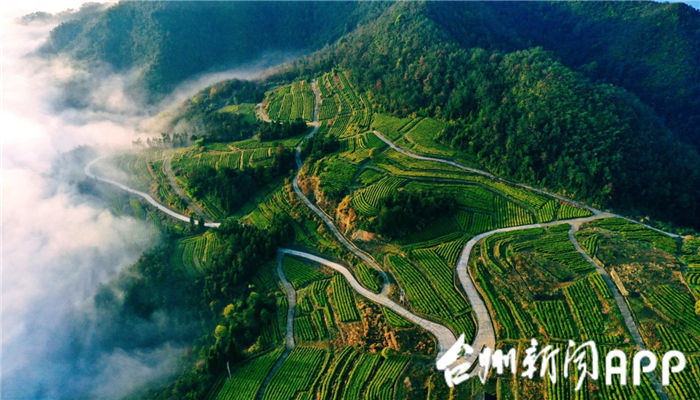Poverty alleviation gains ground in Tiantai
chinadaily.com.cn | Updated: 2020-09-01
Print Print
Vast streches of tea gardens in Taintai county, Taizhou, East China's Zhejiang province [Photo/taizhou.com.cn]
Tiantai county in Taizhou has made strides in poverty alleviation in recent years.
By 2019, the county had already raised the per capita annual income among local low-income farmers to more than 8,000 yuan ($1,159.4).
Currently, efforts are being made to prevent local impoverished residents from falling back into poverty.
A subsidy mechanism has been put in place in Tiantai to help students from low-income families gain access to compulsory education. This year to date, a total of 2,266 students from poor families have received assistance funds worth 1.651 million yuan in total, according to An Liangyuan, an official at the Tiantai bureau of education.
Meanwhile, the local government has also allocated a fund worth 1.99 million yuan to purchase supplementary medical insurance for low-income farmers. The policy has thus far benefited 13,278 people.
The move aims to increase the reimbursement rate of low-income farmers' expenses for medical treatment, said Chen Zhengfei, an official at the Tiantai medical insurance bureau.
Chen Nenghu is a local resident suffering from uremia. He has to go to the hospital for blood dialysis twice a week, and all of his medical bills are covered by insurance: 80 percent is covered by the medical insurance, while the remaining 20 percent is paid by the local supplementary medical insurance.
In addition, the county has initiated a campaign to renovate dilapidated houses for poor families in rural areas. As of Aug 27, renovation on 199 houses across Tiantai has been completed.
Since July, a total of 155 Party cadres have been paired with 588 households with the minimum living guarantee to help them shed poverty.
On top of the aforementioned government support, the local authorities have also mobilized impoverished villages to invest in things such as rural tourism and fruit plantations so as to help locals escape poverty.

